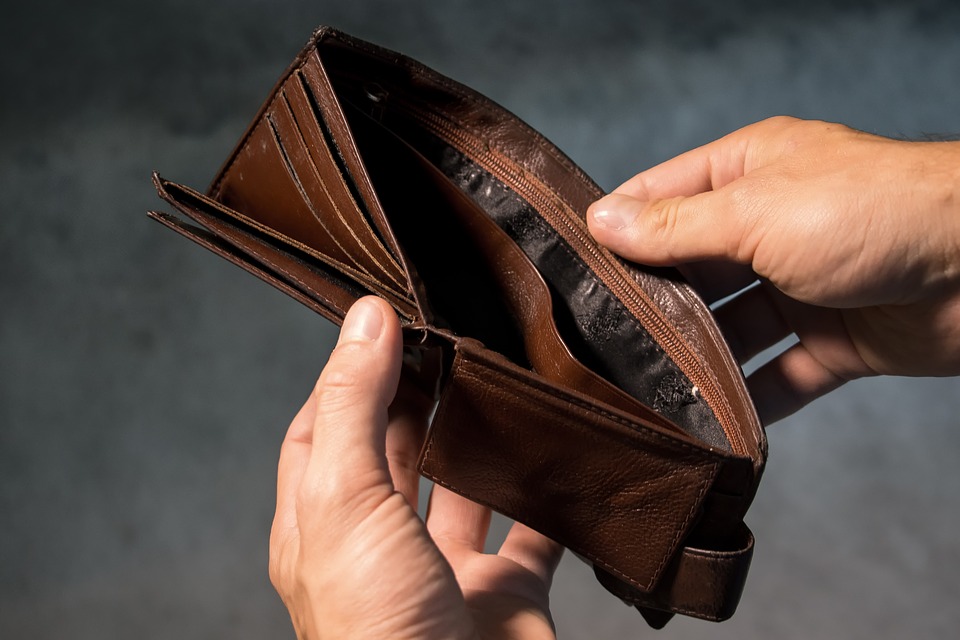A Guide to Securing a Personal Loan After Bankruptcy
3 minute read • Upsolve is a nonprofit that helps you get out of debt with education and free debt relief tools, like our bankruptcy filing tool. Think TurboTax for bankruptcy. Get free education, customer support, and community. Featured in Forbes 4x and funded by institutions like Harvard University so we'll never ask you for a credit card. Explore our free tool
Filing bankruptcy gives you a fresh start, but what if you need to secure a loan after your discharge has been entered? While you're still at the mercy of lenders and financial institutions, getting a loan is not impossible. Guest Contributor Alicia Grayson has put together this short guide on everything you need to know about getting a post-bankruptcy loan.
Written by Alicia Grayson. Legally reviewed by Attorney Andrea Wimmer
Updated February 10, 2021
Table of Contents

Filing for bankruptcy is more common than you think. In fact, the Administrative Office of the U.S. Courts revealed that 772,646 cases of bankruptcy were filed in 2019. While bankruptcy can help you get some relief from your debts, it’s not a catch-all solution to your financial woes. While you recover, you may find yourself in need of a loan to further your business or help you regain your financial footing.
A huge caveat to filing for bankruptcy is that you might find yourself at the mercy of lenders and financial institutions — especially if you’re planning on getting an unsecured loan — though it's not an impossible situation. With that said, we’ve drawn up a short guide on everything you need to know about getting a post-bankruptcy loan.
What does bankruptcy do to your credit score?
Understandably, filing for bankruptcy affects your financial records. For one, your credit score will definitely dip. From what we’ve gathered, a person with an average credit score of 680 will lose as much as 150 points from bankruptcy. Meanwhile, people with above-average credit scores like 780 will see their credit score plunge by as much as 240 points.
Moreover, bankruptcy records will remain on your credit report for 7 to 10 years, depending on what kind of bankruptcy you file. However, sometimes filing for bankruptcy is the best way to deal with overwhelming debt and secure your financial wellbeing, so don't let the dip in credit scores discourage you from taking the steps you need. Case in point, a study by the Federal Reserve Bank of New York found that credit scores eventually increased by up to 80 points after filing for bankruptcy. So, while it may be initially damaging to your credit score, you will recover from bad credit scores due to bankruptcy over time.
Upsolve Member Experiences
1,940+ Members OnlineCan you get an unsecured personal loan after bankruptcy?
The short answer, despite the stigma, is yes. However, it’s not going to be that easy. Lenders use a set of variables to help them determine whether you’re eligible for a loan or not. But since debt has now become an American way of life, there’s always a way for you to reach your financial goals — with or without a bankruptcy on your record.
Firstly, lenders will check the type of bankruptcy you filed. Mainly, people who file for bankruptcy either choose between Chapter 7 and Chapter 13. Our overview of ‘Chapter 7 vs. Chapter 13 Bankruptcy’ explains the main difference between these two types — Chapter 7 bankruptcy liquidates certain unprotected properties to pay creditors, while in Chapter 13, you slowly pay off your debts through a court-approved payment scheme. The type of bankruptcy matters as a Chapter 7 bankruptcy lasts for a max of 10 years on your credit report, whereas Chapter 13 lasts for 7 years at most.
Furthermore, the date you’ve filed for bankruptcy matters, too. It’s harder for people who haven’t landed a stable job to get an unsecured loan if they’ve only recently filed for bankruptcy. Finally, your current credit score weighs the most when it comes to getting a loan, as this primarily dictates your unsecured loan’s payment scheme and interest rates. However, fixing your credit score after bankruptcy is very much possible — paying your bills when they are due and sensibly using your credit card are two small, but significant, ways to rebuild your credit score.
Things to keep in mind before you apply for a post-bankruptcy loan
Of course, some lenders will take advantage of your post-bankruptcy situation and easily give you unsecured loans with a high annual percentage rate (APR). While this may seem enticing, especially if you're in a rush, pushing through with unsecured loans from sketchy lenders will only spell disaster for your financial wellbeing. To help you make a sound decision, it might do you well to seek outside help.
Hiring someone at this time might sound counterproductive if you’re trying to rebuild your finances, but a financial advisor may actually be a good investment for your fresh start. Indeed, Maryville University highlights how the financial sector is set to see a 30% growth between 2014 and 2024 — and rightly so, as consulting with financial advisors can help give you that much needed clarity when it comes to your financial state. They can also help you learn more ways to get better terms for your loan.
Plus, the US Congress has specifically enacted bankruptcy laws to help people start anew from overbearing debt. While it can be difficult to pick up your life post-bankruptcy, you’ll still have a chance to get a personal loan to help assist you with your money crises — all you really need is to equip yourself with the right information and support, and stay away from deals that may further jeopardize you.
